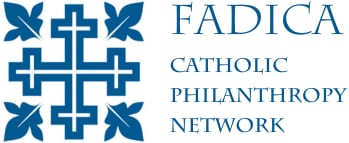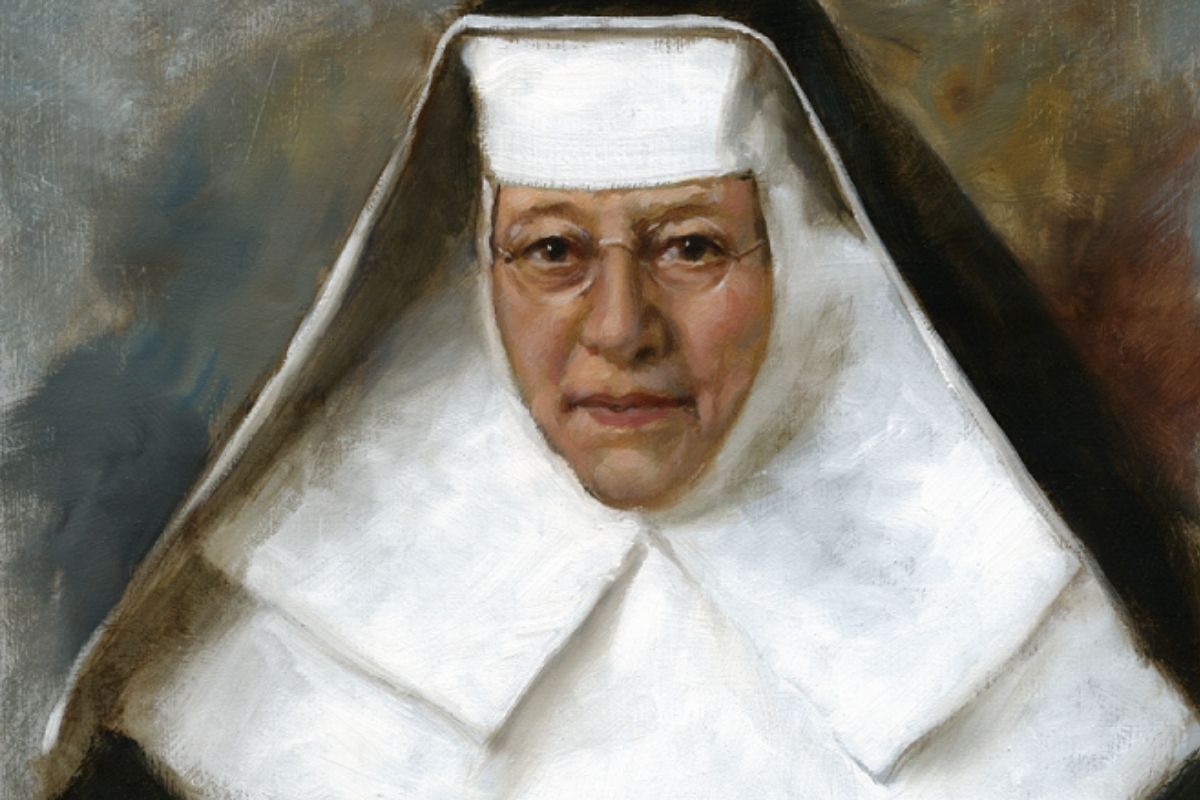Most Catholic philanthropists at some point will hear about St. Katharine Drexel, patron saint of philanthropy, and will hopefully have the opportunity to learn more deeply about her life spent dedicated to serving people in need. St. Katharine is an especially inspiring figure for Catholic philanthropists – and here are at least five reasons why.
1. St. Katharine chose philanthropy.
St. Katharine was born into and inherited her wealth – two things she did not choose. However, St. Katharine did chose to give her life in service to the poor, modeling philanthropy as a choice, even when resources or examples of giving and service are inherited.
Though she was born into wealth and prestige, St. Katharine learned the beauty of service and charity towards others from her parents’ humble examples. St. Katharine’s father would pray for 30 minutes throughout the day and her step-mother ran a back-door charity providing food, clothing, and money to the people in need. This was the beginning of St. Katharine’s call to service.
Later in life, when her family took a trip to the Midwest, St. Katharine encountered Native and Black Americans and the poor ways the people in each group were treated, including an inadequate education compared to white Americans. After this experience, she felt a strong call to serve this population, a call that allowed St. Katharine to branch out and further the love her family had taught her.
2. St. Katharine practiced philanthropy beyond checkbook philanthropy.
Many Catholic philanthropists experience their giving as a vocation, and aspire to practice giving that goes beyond writing checks. FADICA’s mission speaks directly to this desire by supporting Catholic philanthropists in being informed, involved, and effective in their grantmaking.
St. Katharine began her work with Native and Black Americans by giving monetary support to the reservations and people. After St. Katharine’s father died, she and her sisters gave some of their inheritance to the St. Francis Mission of South Dakota’s Rosebud Reservation. She continued to serve people in need monetarily until a trip to Rome with her sisters in 1887.
During a private audience with Pope Leo XIII to ask to send missionaries to serve the people in need in America, especially the people St. Kathrine served, the Pope strongly encouraged St. Katharine herself to become a missionary.
Four years later in 1891, Katharine made her final vows and dedicated her life to serving Native and Black Americans. She eventually founded the congregation called the Sisters of the Blessed Sacrament and spent the rest of her life with this work.
Not every Catholic philanthropist will become vowed religious (although many Catholic foundations are indeed ministries of men and women religious communities!). However, St. Katharine’s story illustrates that the journey of giving can lead philanthropists to new depths.
3. St. Katharine knew those she served and she empowered them.
St. Katharine’s goal was to enable people in need to become and be treated as full citizens of the United States. To accomplish this, St. Katharine worked closely with and understood the people she served.
St. Katharine remembered her early trip to the Midwest and the lack of quality education there, so she established schools, enabling families within the community to build the schools and earn their education. Most of her students were not Catholic and were members of various denominations. She did not force conversions; rather, St. Katharine strived to bring everyone to the table.
Catholic philanthropists today practice hands-on philanthropy in meaningful, impactful ways that hearken back to the hands-on philanthropy that St. Katharine demonstrated. Today’s site visits; trainings; collaborative relationships; and gifts of time, capacity, and expertise are examples.
4. St. Katharine was not afraid to start small.
As someone dedicated to serving others, St. Katharine understood that even the smallest action could bring about great change (as St. Katharine noted, Christ was born a helpless child, who learned to walk through baby steps!). She emphasized the importance of simply starting and of not being afraid to start small. A favorite image of St. Katharine involves her with pencil stubs. She would take new pencils when she traveled to schools and trade the new pencils for the old pencils stubs with the children.
Education was very important to St. Katharine because she understood its long term impact – it opened the door to better opportunities, allowing people to find employment and live a meaningful life. She founded Xavier University in New Orleans the first Catholic University for Black Americans in 1915 because she believed all people had the right to quality education.
5. St. Katharine kept God at the center.
Through God’s graces, St. Katharine knew that she could continue her work with love and kindness. St. Katharine kept God at the center of her everyday life. She would make the most of every moment and would say little prayers to keep God always in her mind. She never let her stress, busyness, or exhaustion push her faith to the back burner.
The same challenges of stress, busyness, and exhaustion face philanthropists today, although today they come in different forms. This is why the philanthropist’s spiritual and faith journey is important. It is important for both individual donors and the Catholic philanthropic community to stay anchored in God and grace.
From a young age, St. Katharine learned of the beauty of service to others and never let go of her mission to help people in need. She understood the challenges of maintaining a rich spiritual life while working on social justice and equality – and yet she knew it was the anchor to all her work. Her life serves as an example to all living a vocation of philanthropy that every person has inherent human dignity and that God must be kept at the center of ones life.
Research assisted by www.catholic.org and www.katharinedrexel.org. Image Copyright © Saint Mary’s Press (used with permission)


